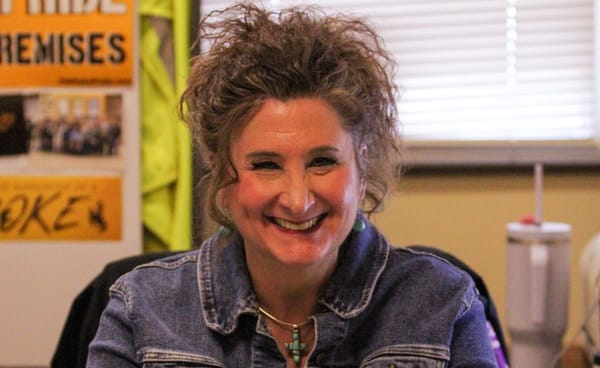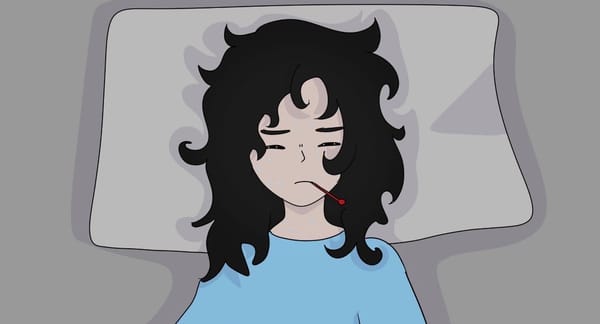When Does This Class End?
Every student knows that feeling and the difference between a class that goes on forever and one that feels exciting and worthwhile.
Tick, tock: a sound all students are familiar with when watching the clock, hoping a class will end. Sometimes it feels like it's been 30 minutes and it's been only five, or vice versa. Every student knows that feeling and the difference between a class that goes on forever and one that feels exciting and worthwhile. A big part of that difference often comes from the teacher, whose attitude and teaching style can set the mood for the entire class.
“I think that a good teacher can make a bad class wonderful and a bad teacher can make a good subject horrible,” commented junior Maya Nayberg.
Another student sharing a similar perspective expanded on the pros and cons of a teacher's mood: “If they’re nice about it and they're helpful then it's like, ‘Oh wait I like this class,’ because I can actually learn in this class, but if they are rude and they just kick you out to be on your own then it's like I don’t know what I need to do,” further explained freshman Evelyn Brown.
While teachers do play a big role in setting the mood of a class, they aren’t the only ones. People who are in a student's class can also play a huge role in how a class is viewed. As is explained by one student, “A lot of my opinions on classes come from who’s actually in the class and if I get lucky and a really good group I can really enjoy that class, but if there's people I don’t like in there or people who are unfriendly it makes it a lot harder to learn and enjoy the experience,” described freshman Kayla Hughes.
People can really make or break a class for some students no matter who the teacher is. If students create a hostile environment, the class may not be as enjoyable, if enjoyable at all.
“I think that if my friends are in the class I’m going to have more fun and get more work done,” argued Nayber. She further explained how even though students may talk a lot with their friend it doesn’t necessarily hinder how they may perform in that class. “When you have someone there that you can just rely on and depend on, it makes it a much better class,” reiterated Nayber.
Sophomore Ava Swartzendruber further expanded on what a good classroom environment looks like for her. “A good classroom environment is everybody respecting each other and their boundaries, nobody talking over each other or the teacher so that everybody can learn most effectively. When nobody talks over each other you can really listen, and a lot of people have a lot of different ways of learning,” commented Swartzendruber. “When the room is quiet so I can hear the teacher, I’m not overstimulated with other people talking and messing around which helps me pay better attention which also helps me understand the material better,” explained Swartzendruber.
Having friends in class and a good class environment can make class more enjoyable and less stressful for those who look past the hard material of their class and lean on their friend for support, although the workload can also play a big role in the student experience. Even with supportive classmates and teachers, too much homework or overwhelming assignments can quickly change the way a student feels about their class.
“My favorite class is 2D arts…the workload is very doable,” said Phillips.
Sophomore Emory Downey shared a similar experience when talking about what makes a class enjoyable, saying, “[Not having a big workload] is less stressful on the students and on the teacher, making the class more enjoyable and more focused on learning,” explained Downey.
Downey and Phillips aren’t the only ones who felt workload affecting their view towards a class. “I feel like there's too much work and it's colliding with other classes, then it becomes a less likeable class because then I have to juggle everything along with this and now I’m struggling,” explained Brown.
The common theme between Phillips, Downey, and Brown is workload. The students highlight how it might interfere with other classes or make them stressed out if there is too much homework or the workload in class is too rigorous. Even though workload, teachers, and students can create challenges for some students, for others they make the class worthwhile. “I have not had a bad class in the school, regardless of the teachers. I think that they have a really great academic diversity, and that they perform really well,” commented Nayberg.





